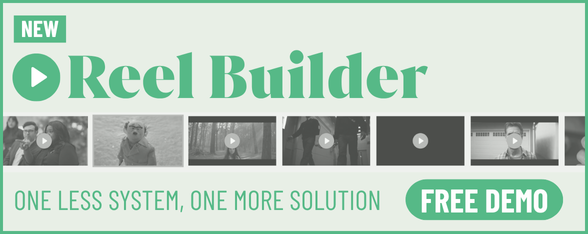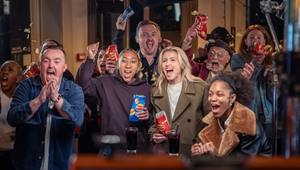
Sustainable Production In A Post-Covid World

Covid-19 is hitting our industry hard. Among the many upheavals and changes brought about by the pandemic, the cancellation of shoots and rising uncertainty over when we may return (if ever) to normality has left us scratching our collective heads to find solutions.
With reports indicating that we could still be a few months away from many locations seeing cameras roll on live-action projects, all we can say for certain is that we have an opportunity to take stock and plan for the future. However, whilst we’re doing the important work needed to get our industry back on its feet, it’s imperative that we don’t lose sight of our environmental responsibilities. This period of reflection that’s been forced upon us could, at least, be a good chance to assess where we’re at on our sustainable production journey, and to make further plans for our low carbon future.
Earlier this year we saw the Advertising Association establish two climate action groups, and work on the trade body's key objectives continues apace despite the lockdown. The working group members are collaborating with consultants to produce a report detailing the industry’s emissions. This will offer a consensus on the most efficient path to a net zero emission industry. The results are already being anticipated, and groundwork is being done to provide practical tools: a production carbon calculator, certification and industry wide training - a potential partnership with the BAFTA albert initiative is also being explored to help accelerate progress.
I have no doubt that the results of the AA’s efforts will give us the opportunity to practice sustainable production 2.0 in the future, but what can we do in the meantime, given the ‘new normal’ we’ve been dealt? Many people have mentioned the cleaner air, all those grounded flights – this is good for the environment, right? Well, it’s useful (and slightly terrifying) to understand that despite the reduction in carbon emissions we’ll see for 2020 because of Covid-19, reductions like these still wouldn’t even come close to achieving the 1.5C global temperature limit we need.
With this in mind, one can get a sense of just how dramatic the changes need to be in order to avert the next major crisis on the horizon. We need to continue to live as we are now, only using even LESS carbon. Does that feel realistic? Probably not for most people. It’s more likely that we’ll adapt with a mixture of reduced activity (people travelling when necessary but not to the extent we’re done so before), and by using less carbon intensive alternatives (like solar planes… I can dream). But what does this look like for advertising?
It’s important to understand two things. Firstly, albert’s TV production data tells us the three most carbon intensive production items are transport, energy, and then waste. Secondly, there is no ‘one’ thing you can do that’ll fix this mess. It’s a combination of actions, lobbying and education that will get us out the other side.
So, whilst ensuring reusable cups and plates are on-set is a good thing, it pales in comparison to the carbon savings you’ll make in having clients join a shoot via video link rather than having them fly over in business class. That’s why it makes sense to educate yourself on the carbon emissions associated with your business. Where a full ‘shoot carbon calculator’ for advertising might not be available just yet, you can still work with consultants such as Natural Capital Partners (who manage the Carbon Neutral standard) to understand which areas of your company carbon footprint are the highest. Armed with this information, you can then target the biggest areas for reduction – either by changing habits, methods or suppliers, and finally, offset what’s unavoidable until better solutions are available. As of 2020, NCP are also certifying productions – and potentially production processes, meaning once you have a standard set of procedures in place, all of your shoots could be certified too. This is something we’re looking into at LS Productions (where I’m head of production) during the quieter time.
Given that we already know from albert’s carbon data that hauling large crews and equipment across oceans and borders is something that comes at a high environmental price, what can we do about it? We’ve all heard about the innovative remote monitoring solutions which have sprung up over the last few weeks, and these will inform the new habits we’ll all need to get into. This also aligns with how service production will need to adapt (regardless of Covid-19) in offering up amazing shooting locations whilst helping clients keep their travel emissions low.
When it comes to energy, some great strides have been made on this already through albert’s Creative Energy scheme. If my AdGreen inbox is anything to go by, many companies are looking to improve their sustainability specs during the downtime and switching to renewable energy for your premises is a very easy way to do this. When it feels appropriate to do so (and it feels like we’re a few weeks away yet), you can also start asking your suppliers about what tariffs they’re running on – studios, post houses, service production – we should all get used to having these conversations and making it clear that these things matter to us.
Finally, waste. Whilst this is lower down on the list in terms of carbon footprint, it’s still important. Disappointingly, I sense some of the measures needed to combat further waves of the virus will result in increased on-set waste (how many masks do you think a production crew could go through in one day?). After seeing production companies work so hard to reduce rubbish on set over the past few years, it’s frustrating to think it may be partly undone. Of course, we will implement whatever measures are deemed necessary by the government, and likely more besides that might be stipulated by our clients – but at least we have a heads up on what these might be, and we can spend the downtime looking into the least wasteful ways to help everybody stay safe on set.
Nobody asked for this crisis, and there’s no doubt it’s hurting our industry. However, amidst all the upheaval there is an opportunity to come out of this more mindful of the challenges up the road and prepared for the new ways of working that suit not only virus-related restrictions, but the environment too.
Jo Coombes is head of production at LS Productions and the founder of AdGreen, and will run online ‘Green Ambassador’ training Thursday 23rd April at 10.30am BST as part of the APA’s ‘Some Sort of Webseries’ – more info here.















